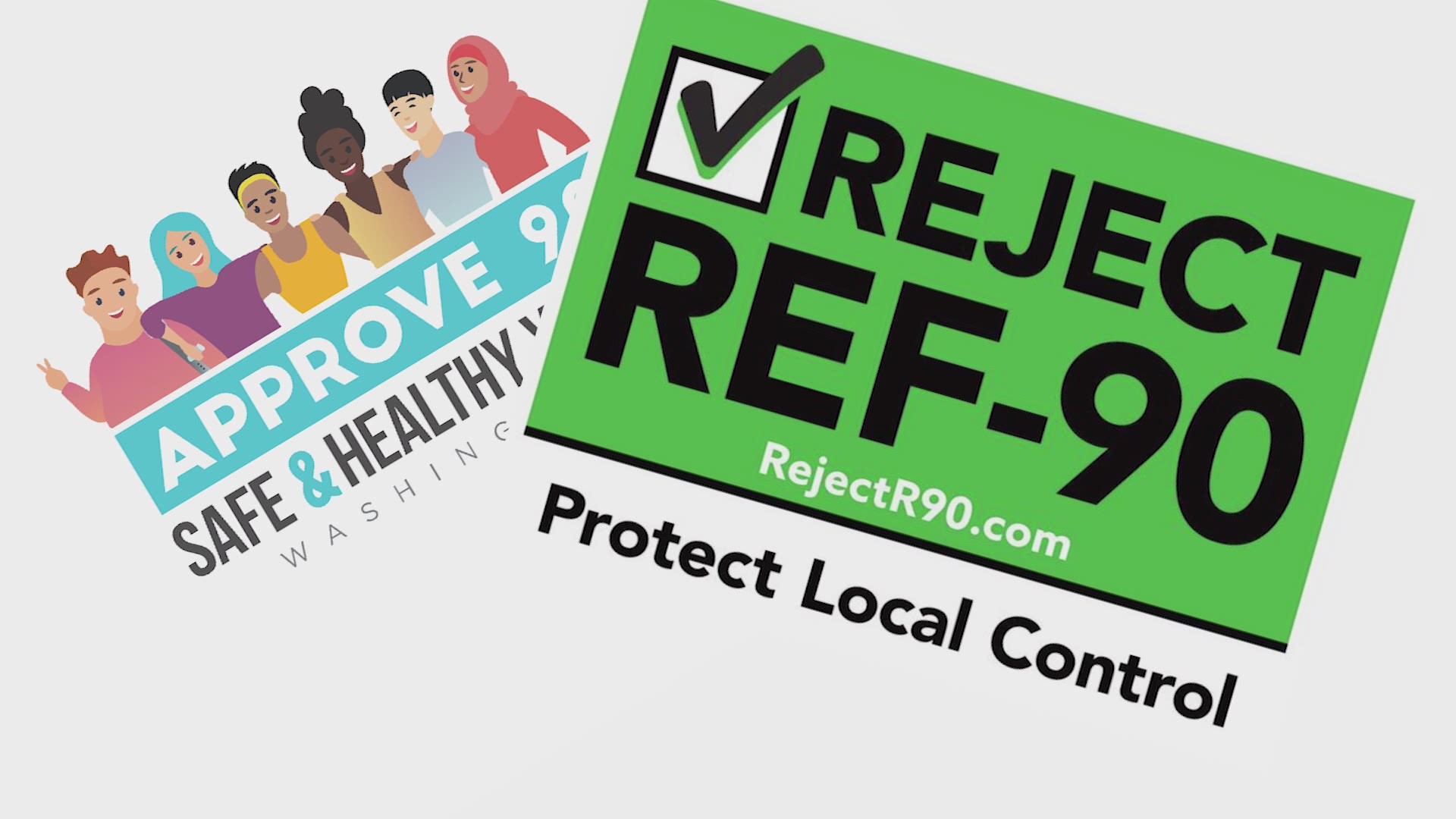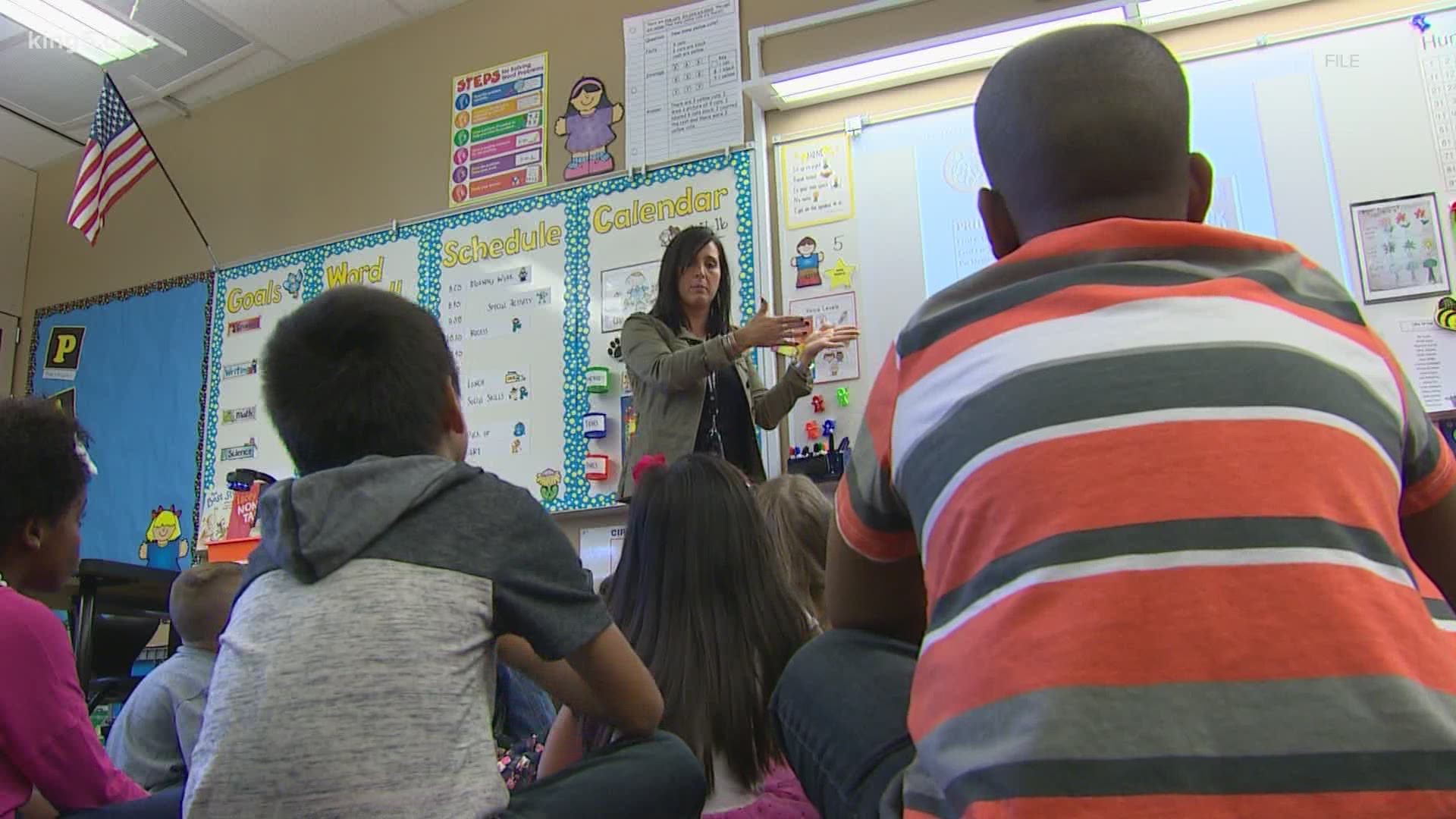SEATTLE — One of the high profile issues on the ballot in Washington state this November is Referendum 90, which involves the future of sex education in schools.
In the spring, the state legislature passed and Gov. Jay Inslee signed Senate Bill 5395 concerning comprehensive sexual health education. The bill would require school districts to adopt or develop, consistent with state standards, comprehensive, age-appropriate sexual health education for all students. Parents can request that their child be excused from the instruction.
A grassroots effort gathered enough signatures in June to force the issue of sex education in public schools to be decided by voters.
In an exclusive KING 5 poll, nearly 600 likely voters were asked how they would vote on Referendum 90. Of those polled, 52% said they would approve it and make the new bill the law, while 34% said they would block Referendum 90. Fourteen percent of those polled were undecided.
Liezl Rebugio is the co-manager of the Approve Referendum 90 campaign.
"I really am so passionate and supportive of Referendum 90 because I want my girls to get the information and the education that I didn't get," explained Rebugio.
She wants comprehensive sex education that includes the topics of healthy relationships and consent in Washington state's public schools.
While Rebugio sees Referendum 90 as stepping up to that challenge, Lander Groff, a mother of three from Snohomish, sees it as overstepping.
"I have found it vital to sit down with my kids and to have those personal conversations when they're ready," said Groff.
Groff took part in a large protest on March 11 in Olympia, rallying against comprehensive sex education.
"It desensitizes these kids to a point where I just feel like it's over-sexualizing them," explained Groff.
Rebugio has heard that criticism before and calls it "troubling" and "simply not true."
According to the bill, comprehensive sex education would be scientifically and medically accurate, as well as age-appropriate.
Students in kindergarten through third grade would be taught social-emotional learning with a focus on controlling emotions, understanding boundaries and identifying a trusted adult.
"This can be done really well, and it's locally-determined, locally-controlled, local board adoption, complete with a full parent opt out for any or all of them," said incumbent State Superintendent Chris Reykdal.
Candidate Maia Espinoza, Reykdal's challenger, is not in favor of Referendum 90.
"You can't opt out of the playground talk, you can't opt out of what happens in the lunchroom," said Espinoza. "If you look at the curriculum options that are approved under OSPI, we as parents, myself as a parent of a middle schooler, do not find this content is not entirely age-appropriate. So, we have deep concerns."
Reykdal said what the state's Healthy Youth Survey found highlights why comprehensive sexual health education is needed.
"When one in three girls and one in six boys tell us through their own response to us that they feel that they've been a victim of sexual abuse, sexual assault, unwanted touch, then we've got a problem,” said Reykdal. “And we can do something about that.”
"Keeping our kids safe from abuse and assault is not controversial," said Rebugio.
"I don't think everybody needs to learn these things, not by the school district,” said Groff. “That is my job.”
It's a debate that is only growing louder as the Nov. 3 election gets closer.


